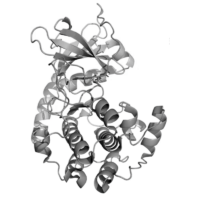Together for Tyrol – 70 Years of Cancer Aid & 25 Years of Cancer Research at TKFI
Among the many important tasks we undertook this year, organizing a charity event on June 25 in the…
In oncogenesis, a normal cell in our body is transformed and becomes a tumor cell, resulting in uncontrolled multiplication and impairment of central body functions. Mutations or errors in the translation of genetic information are among the causes of cancer formation, being held responsible for altering the genetic code.
At the Tyrolean Cancer Research Institute/Tiroler Krebsforschungsinstitut (TKFI), researchers with a wide range of expertise investigate the molecular causes of cancer aetiology and progression. The TKFI working groups from both Innsbruck Universities (Medizinische Universität Innsbruck (MUI) and Leopold-Franzens-Universität (LFU)) aim to understand the pathological effects of different cancer drivers and to uncover their mode of action at a molecular level. These teams strive to assist in identifying new approaches for personalized cancer therapies.

These projects focus on the molecular causes and progression of cancer.

Projects involved emphasize cancer therapy and mechanisms of drug resistance.

Associated projects deal with topics such as the analysis of respiratory gases, deciphering of oncoproteins, and establishment of organoids.
Here we list for you news and scientific achievements chronologically.
Among the many important tasks we undertook this year, organizing a charity event on June 25 in the…
Recently, the TKFI welcomed a group of passionate students from Gymnasium Telfs. The visit began with a theoretical…